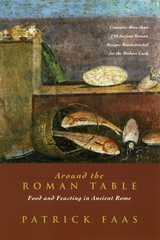
Faas guides readers through the culinary conquests of Roman invasions—as conquerors pillaged foodstuffs from faraway lands—to the decadence of Imperial Rome and its associated table manners, dining arrangements, spices, seasonings, and cooking techniques. With recipes for such appetizing dishes as chicken galantine with lambs' brains and fish relish, Around the Roman Table is ideal for food aficionados who wish to understand how the desire for power and conquest was manifested in Roman appetites.
"There are many misconceptions about the food of ancient Rome that Faas sets out to correct. The result is half cookbook, half history book and is entirely fascinating to both chef and antiquarian alike."—Washington Times

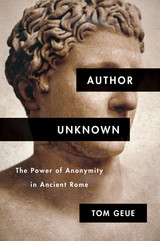
An exploration of the darker corners of ancient Rome to spotlight the strange sorcery of anonymous literature.
From Banksy to Elena Ferrante to the unattributed parchments of ancient Rome, art without clear authorship fascinates and even offends us. Classical scholarship tends to treat this anonymity as a problem or game—a defect to be repaired or mystery to be solved. Author Unknown is the first book to consider anonymity as a site of literary interest rather than a gap that needs filling. We can tether each work to an identity, or we can stand back and ask how the absence of a name affects the meaning and experience of literature.
Tom Geue turns to antiquity to show what the suppression or loss of a name can do for literature. Anonymity supported the illusion of Augustus’s sprawling puppet mastery (Res Gestae), controlled and destroyed the victims of a curse (Ovid’s Ibis), and created out of whole cloth a poetic persona and career (Phaedrus’s Fables). To assume these texts are missing something is to dismiss a source of their power and presume that ancient authors were as hungry for fame as today’s.
In this original look at Latin literature, Geue asks us to work with anonymity rather than against it and to appreciate the continuing power of anonymity in our own time.

John D'Arms explores here a question of central importance for the social economic history of the Roman world: which sectors of society were actively engaged in trade?
In the late Roman Republic and early Empire senators were prohibited by law from direct participation in seaborne commerce; trade was not considered a respectable pursuit. Yet large fortunes were amassed by men of rank through a variety of lucrative enterprises. Exploiting the evidence of literature, archaeology, and inscription, D'Arms constructs case histories which reveal how senators realized commercial profits by indirect involvement: freedmen, municipal notables, and "friends" often served as the equivalent of partners or agents of aristocrats with large holdings in land. In demonstrating a flexibility in upper-class attitudes toward commercial activity, he offers a study in the adaptation of a social system to economic realities.

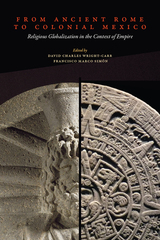
An international team of specialists in classical scholarship and Mesoamerican studies engage in an interdisciplinary discussion involving ideas from history, anthropology, archaeology, art history, iconography, and philology. Key themes include the role of religion in processes of imperial domination; religion’s use as an instrument of resistance or the imposition, appropriation, incorporation, and adaptation of various elements of religious systems by hegemonic groups and subaltern peoples; the creative misunderstandings that can arise on the “middle ground”; and Christianity’s rejection of ritual violence and its use of this rejection as a pretext for inflicting other kinds of violence against peoples classified as “barbarian,” “pagan,” or “diabolical.”
From Ancient Rome to Colonial Mexico presents a sympathetic vantage point for discussing and attempting to decipher past processes of social communication in multicultural contexts of present-day realities. It will be significant for scholars and specialists in the history of religions, ethnohistory, classical antiquity, and Mesoamerican studies.
Publication supported, in part, by Spain’s Ministry of Economy and Competitiveness.
Contributors: Sergio Botta,Maria Celia Fontana Calvo, Martin Devecka, György Németh, Guilhem Olivier, Francisco Marco Simón, Paolo Taviani, Greg Woolf, David Charles Wright-Carr, Lorenzo Pérez Yarza
Translators: Emma Chesterman, Benjamin Adam Jerue, Layla Wright-Contreras
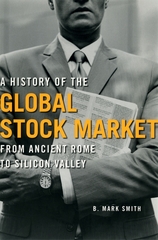
Informative, entertaining, and written for specialists and non-specialists alike, A History of the Global Stock Market is a worthy read for anyone who wants to understand the role of the stock market in the global economy.
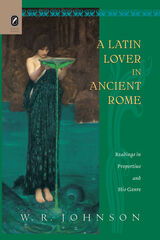
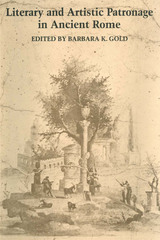
Virgil, Horace, Catullus, Propertius—these are just a few of the poets whose work we would be without today were it not for the wealthy and powerful patrons upon whose support the Roman cultural establishment so greatly depended. Who were these patrons? What benefits did they give, to whom, and why? What effect did the support of such men as Maecenas and Pompey have on the lives and work of those who looked to them for aid?
These questions and others are addressed in this volume, which explores all the important aspects of patronage—a topic crucial to the study of literature and art from Homer to the present day. The subject is approached from various vantage points: literary, artistic, historical. The essayists reach conclusions that dispel the many misconceptions about Roman patronage derived from seventeenth- and eighteenth-century models in England and Europe.
An understanding of the workings of patronage is indispensable in helping us see how the Roman cultural establishment functioned in the four centuries of its flourishing and also in helping us read and enjoy specific poems and works of art. A book for all concerned with classical literature, art, and social history, Literary and Artistic Patronage in Ancient Rome not only deepens our understanding of the ancient world but also suggests important avenues for future exploration.
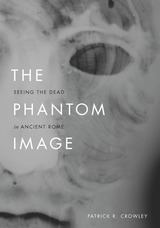

Frenzied crowds, talking ravens, the stench of the Tiber River: life in ancient Rome was stimulating, dynamic, and often downright dangerous. The Romans relaxed and gossiped in baths, stole precious water from aqueducts, and partied and dined to excess. Everyone from senators to the enslaved crowded into theaters and circuses to watch their favorite singers, pantomime, and comedies and scream their approval at charioteers. The lucky celebrated their accomplishments with elaborate tombs. Amid pervasive inequality and brutality, beauty also flourished through architecture, poetry, and art.
From the smells of fragrant cookshops and religious sacrifices to the cries of public executions and murderous electoral mobs, Guy de la Bédoyère’s Populus draws on a host of historical and literary sources to transport us into the intensity of daily life at the height of ancient Rome.
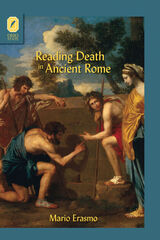
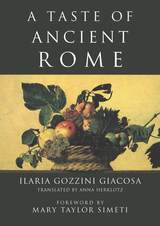
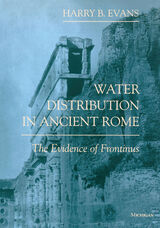
READERS
Browse our collection.
PUBLISHERS
See BiblioVault's publisher services.
STUDENT SERVICES
Files for college accessibility offices.
UChicago Accessibility Resources
home | accessibility | search | about | contact us
BiblioVault ® 2001 - 2025
The University of Chicago Press









